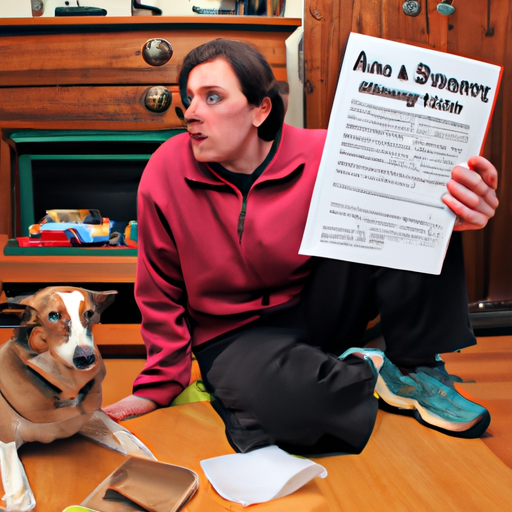Is your furry friend turning your home into a chew toy? You’re not alone. Many dog owners face the perplexing question of how to get dogs to stop eating everything. It’s not just about keeping your favorite shoes safe, it’s also about ensuring your dog’s health and well-being. This article will guide you through the various reasons for this behavior and offer practical solutions to curb it.
Table of Contents
- Understanding Why Dogs Chew
- Training Your Dog Not to Chew
- Dog-Proofing Your Home
- Dietary Considerations
- Professional Help
- Frequently Asked Questions
Key Takeaways
- Dogs chew for various reasons including teething, boredom, stress, and hunger.
- Consistent training and positive reinforcement can deter your dog from chewing inappropriate items.
- Dog-proofing your home is crucial to keep your belongings and your pet safe.
- Dietary changes can also help manage your dog’s chewing habits.
- Consult a professional if your dog’s chewing behavior becomes destructive or obsessive.
Understanding Why Dogs Chew
Dogs chew for a variety of reasons. Puppies, like human babies, chew when they are teething to alleviate discomfort. Adult dogs may chew out of boredom, stress, or hunger. Sometimes, dogs chew simply because they enjoy the sensory experience. Understanding the underlying reason for your dog’s behavior is the first step in addressing it.
Training Your Dog Not to Chew
Training is a critical aspect of managing your dog’s chewing habits. Start by providing appropriate chew toys for your dog. When you catch your dog chewing on something inappropriate, say a firm “No” and replace the object with a chew toy. Offer praise or a treat when your dog chews on the toy. This is known as positive reinforcement and encourages your dog to repeat the desired behavior.
You can also consider using a taste deterrent, a non-toxic spray that can be applied to furniture or other objects to make them less appealing to your dog. The Humane Society offers a comprehensive guide on using taste deterrents effectively.
Dog-Proofing Your Home
Dog-proofing your home is another way to keep your dog and your belongings safe. Store valuable items out of your dog’s reach and use baby gates to block off rooms with tempting chewables. One Top Dog offers some useful tips on pet-proofing your home.
Dietary Considerations
If your dog is chewing out of hunger, consider adjusting their diet. Your dog may not be getting enough nutrients or may have a medical condition causing increased hunger. Always consult your vet before making drastic changes to your dog’s diet. One Top Dog has a great article on choosing the right diet for your dog.
Professional Help
If your dog continues to chew destructively despite your efforts, it may be time to seek professional help. A professional dog trainer or a veterinary behaviorist can provide personalized guidance based on your dog’s individual needs. The American Veterinary Medical Association provides a list of veterinary behaviorists in your area.
Frequently Asked Questions
1. Why does my dog chew everything?
Dogs chew for various reasons including teething, boredom, stress, and hunger. Understanding the underlying reason for your dog’s behavior is the first step in addressing it.
2. How can I stop my dog from chewing everything?
Training, dog-proofing your home, adjusting your dog’s diet, and seeking professional help are all strategies to manage your dog’s chewing behavior.
3. Is chewing a sign of a medical problem in dogs?
Excessive or destructive chewing can sometimes be a sign of a medical problem. If you’re concerned about your dog’s behavior, it’s best to consult your vet.
4. Can I use a taste deterrent to stop my dog from chewing?
Yes, a taste deterrent can be an effective way to discourage your dog from chewing inappropriate objects. However, it should be used in conjunction with training and other strategies.
Remember, your dog’s well-being is your responsibility. With patience, consistency, and the right strategies, you can help your dog ditch the destructive chewing habit. For more dog care tips, check out One Top Dog.



